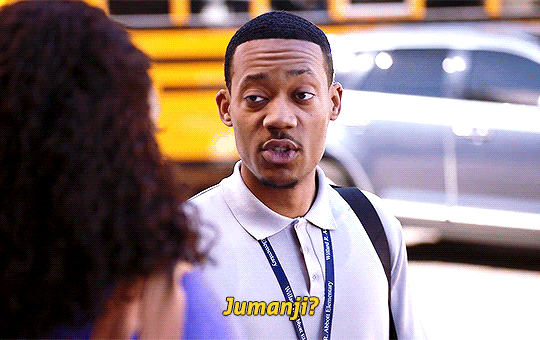Photo
everyone returning to their witchy 2015 tumblrs rn


Addams Family Values (1993) dir. Barry Sonnenfeld
6K notes
·
View notes
Text
it’s almost that time of the year again, so you know what that means

322K notes
·
View notes
Photo
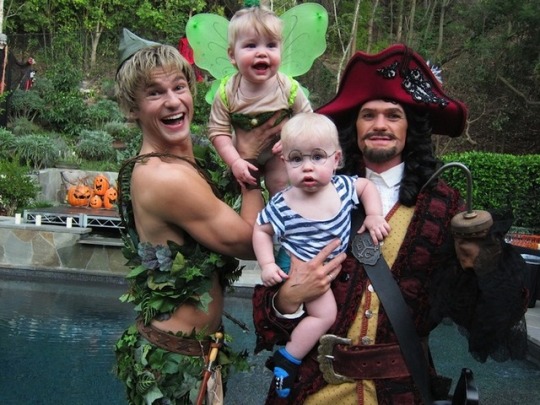
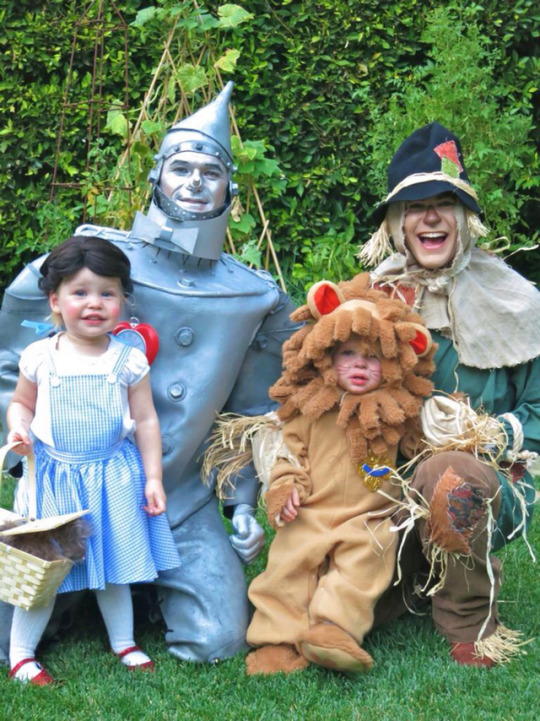
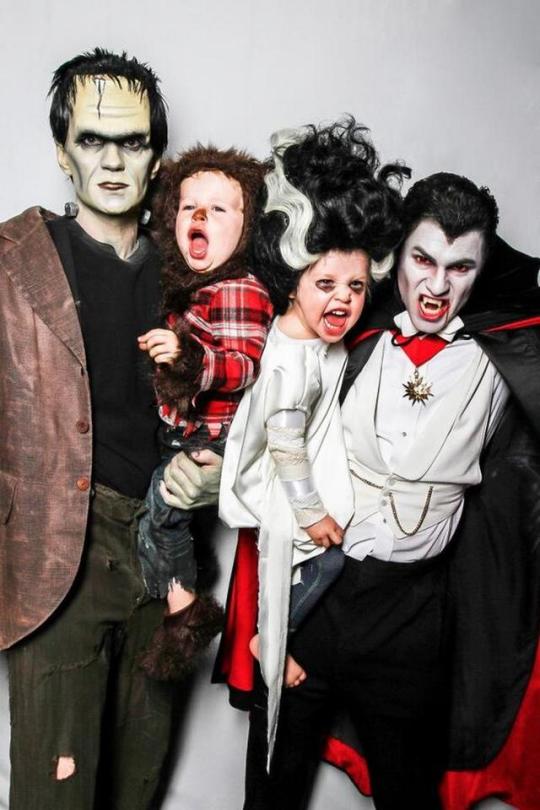
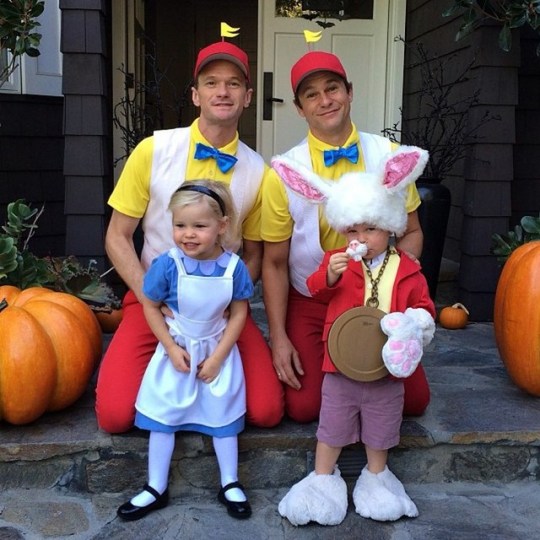

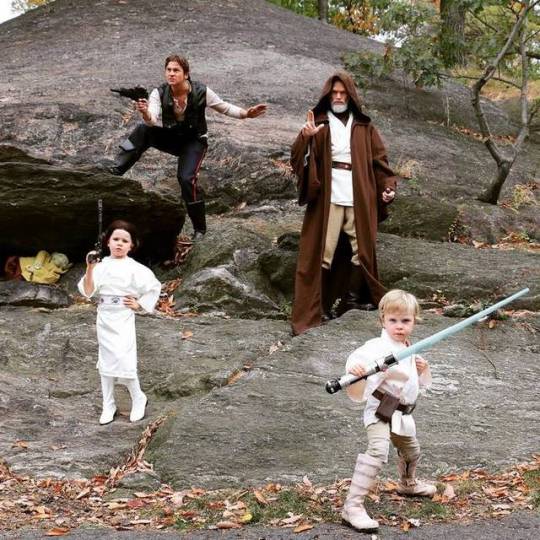
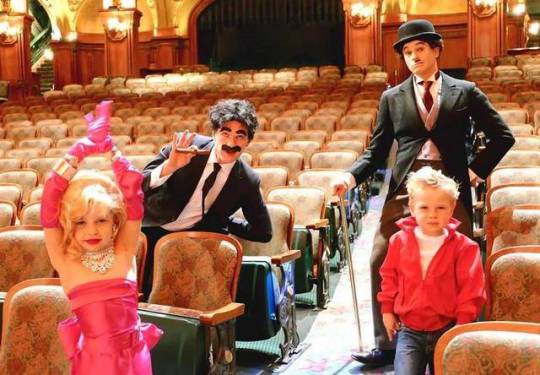
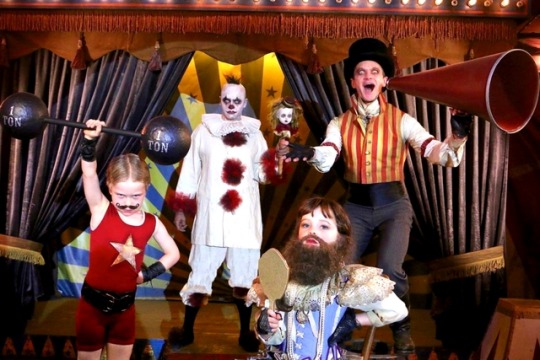
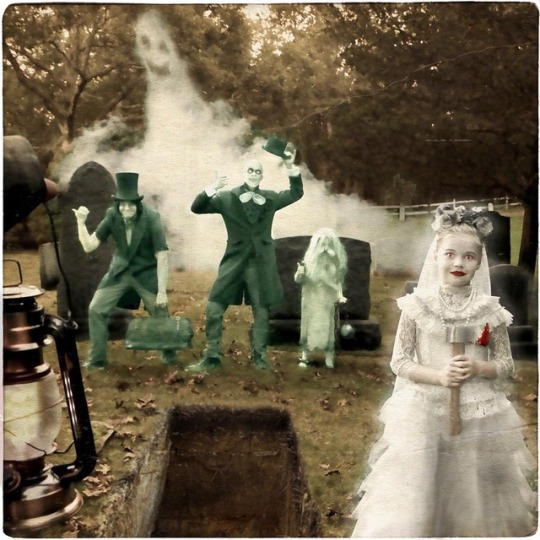
Burtka-Harris Family Halloweens (2011-2018)
50K notes
·
View notes
Text
this is really encouraging and funny and all but at least two of the ones on this list are completely valid.
Famous authors, their writings and their rejection letters.
Sylvia Plath: There certainly isn’t enough genuine talent for us to take notice.
Rudyard Kipling: I’m sorry Mr. Kipling, but you just don’t know how to use the English language.
Emily Dickinson: [Your poems] are quite as remarkable for defects as for beauties and are generally devoid of true poetical qualities.
Ernest Hemingway (on The Torrents of Spring): It would be extremely rotten taste, to say nothing of being horribly cruel, should we want to publish it.
Dr. Seuss: Too different from other juveniles on the market to warrant its selling.
The Diary of Anne Frank: The girl doesn’t, it seems to me, have a special perception or feeling which would lift that book above the ‘curiosity’ level.
Richard Bach (on Jonathan Livingston Seagull): will never make it as a paperback. (Over 7.25 million copies sold)
H.G. Wells (on The War of the Worlds): An endless nightmare. I do not believe it would “take”…I think the verdict would be ‘Oh don’t read that horrid book’. And (on The Time Machine): It is not interesting enough for the general reader and not thorough enough for the scientific reader.
Edgar Allan Poe: Readers in this country have a decided and strong preference for works in which a single and connected story occupies the entire volume.
Herman Melville (on Moby Dick): We regret to say that our united opinion is entirely against the book as we do not think it would be at all suitable for the Juvenile Market in [England]. It is very long, rather old-fashioned…
Jack London: [Your book is] forbidding and depressing.
William Faulkner: If the book had a plot and structure, we might suggest shortening and revisions, but it is so diffuse that I don’t think this would be of any use. My chief objection is that you don’t have any story to tell. And two years later: Good God, I can’t publish this!
Stephen King (on Carrie): We are not interested in science fiction which deals with negative utopias. They do not sell.
Joseph Heller (on Catch–22): I haven’t really the foggiest idea about what the man is trying to say… Apparently the author intends it to be funny – possibly even satire – but it is really not funny on any intellectual level … From your long publishing experience you will know that it is less disastrous to turn down a work of genius than to turn down talented mediocrities.
George Orwell (on Animal Farm): It is impossible to sell animal stories in the USA.
Oscar Wilde (on Lady Windermere’s Fan): My dear sir, I have read your manuscript. Oh, my dear sir.
Vladimir Nabokov (on Lolita): … overwhelmingly nauseating, even to an enlightened Freudian … the whole thing is an unsure cross between hideous reality and improbable fantasy. It often becomes a wild neurotic daydream … I recommend that it be buried under a stone for a thousand years.
The Tale of Peter Rabbit was turned down so many times, Beatrix Potter initially self-published it.
Lust for Life by Irving Stone was rejected 16 times, but found a publisher and went on to sell about 25 million copies.
John Grisham’s first novel was rejected 25 times.
Jack Canfield and Mark Victor Hansen (Chicken Soup for the Soul) received 134 rejections.
Robert Pirsig (Zen and the Art of Motorcycle Maintenance) received 121 rejections.
Gertrude Stein spent 22 years submitting before getting a single poem accepted.
Judy Blume, beloved by children everywhere, received rejections for two straight years.
A Wrinkle in Time by Madeline L’Engle received 26 rejections.
Frank Herbert’s Dune was rejected 20 times.
Carrie by Stephen King received 30 rejections.
The Diary of Anne Frank received 16 rejections.
Harry Potter and The Philosopher’s Stone by J.K. Rolling was rejected 12 times.
Dr. Seuss received 27 rejection letters
152K notes
·
View notes
Text
why “spanking is harmful” studies will, ultimately, never matter to parents who want to hit their kids:
@fandomsandfeminism wrote a great post recently about the fact that we have, essentially, a scientific consensus on the fact that all forms of hitting children, including those euphemistically referred to as “spanking”, are psychologically harmful. they’ve also done an amazing job responding to a lot of parents self-admitted abusers who think “I hit my child and I’m okay with that” and/or “I was hit as a child and I don’t think there’s anything wrong with me” are more meaningful than 60 years of peer-reviewed research.
unfortunately, I’m here to tell you why all of that makes very little difference.
in 2014, a couple of researchers from UCLA and MIT named Alan Fiske and Tage Rai published a book called Virtuous Violence, the result of a major study of the motivations for interpersonal violence. Rai wrote a shorter piece about it in Quartz, which is a pretty light but still illuminating (hah, I did not see that pun coming but I’m gonna leave it) read.
the upshot of Fiske and Rai’s work is that most violence is fundamentally misunderstood because we think it is inherently outside the norms of a supposedly moral society. we presume that when someone commits a mass shooting or beats their spouse they are somehow intrinsically broken, either incapable of telling right from wrong or too lacking in self-control to prevent themselves from doing the wrong thing.
but what Fiske and Rai found was that, in fact, the opposite is true: most violence is morally motivated. people who commit violent acts aren’t lacking moral compasses - they believe those violent acts are not only morally acceptable, but morally obligatory. usually, these feelings emerge in the context of a relationship which is culturally defined as hierarchical. in other words, parents who commit violence against their children do so because they believe it is necessary that they do so in order to establish or affirm the dominance which they feel they are owed by both tradition and moral right.
when abusive parents say that they are “hitting children for their own good”, they are not speaking in terms of any rational predictions for the child’s future, but rather from a place of believing that the child must learn to be submissive in order to be a “good” child, to fulfill their place in the relationship.
this kind of violence is not the result of calm, intellectually reasoned deliberation about the child’s well-being. for that reason and that reason alone it will never be ended by scientific evidence.
history tells us more than we need to verify this. the slave trade and the institution of racial slavery, and their attendant forms of “corrective” physical violence, for instance, did not end because someone demonstrated they were physically or psychologically harmful to slaves - that was never a question in people’s minds to begin with. for generations, slavery was upheld as right and good not because it was viewed as harmless, but because it was viewed as morally necessary that one category of people should be “kept in their place” below another by any means necessary, because they were lower beings by natural order and god’s law. this violence ended because western society became gradually less convinced of the whole moral framework at play, not because we needed scientists to come along and demonstrate that chain gangs and whippings were psychologically detrimental. this is only one example from a world history filled with many, many forms of violence, both interpersonal and structural, which ultimately were founded on the idea that moral hierarchies must be maintained through someone’s idea of judiciously meted-out suffering.
and this, ultimately, is why we cannot end violence against children by pointing out that it is harmful - because the question of whether or not it is harmful does not enter into parents’ decisions about whether or not to commit violence in the first place. what they care about is not the hypothetical harm done to the child, but the reinforcement of the authority-ranked nature of the relationship itself. the reason these people so often sound like their primary concern is maintaining their “right” to hit their children is because it is. they believe that anyone telling them they can’t hit their children is attempting to undermine the moral structure of that individual relationship and, in a broader sense, the natural order of adult-child relations in society.
and that’s why the movement has to be greater than one against hitting kids. it has to be a movement against treating them as inferior, in general. it has to be a movement that says, children are people, that says children’s rights are human rights, that says the near-absolute authority of parents, coupled with the general social supremacy of adults and the marginalization of youth, have to all be torn down at once as an ideology of injustice and violence. anything less is ultimately pointless.
34K notes
·
View notes
Note
Louis from suits seems gay is that a thing. I'm on season 1
Short answer (spoilers): as of season 8 of Suits, he’s shown overt and subtle attraction to female characters only - I don’t think they’ve ever specifically said he is straight, but he has only ever expressed interest in female partners and had/has female partners.
Long(er) answer: Louis is a bit of a caricature, and some of his characteristics are written and performed as larger-than-life to the point of being a bit ridiculous, in an entertaining (or intended to be entertaining) way - in almost a Disney-villain type of way in the early seasons. Quite a few of his interests are stereotypically-feminine interests: ballet, cats, fine arts, spa sessions, etc. When this is presented in contrast to his position as the archetypal aggressive antagonist/foil for the archetypal hero, Mike (though I don’t see Mike as a hero necessarily, but for the sake of plot structure I acknowledge that is intended to be his role in a way), we see Louis as effeminate villain, which in keeping with his Disney-style level of melodramatic ridiculousness would bring to mind villains which would have been in the past referred to as “flamboyant” or “a dandy” or other not-so-hidden terms for “gay-coding” a villain. Smarter people than I have written about the long history of villains in children’s stories (or other melodramatic stories) being “gay-coded” in a subtle(ish) way of villainizing the non-norm (thus, villainizing effeminate men, masculine women, or gay/lesbian men and women regardless of their gender conforming behavior), and I definitely recommend anyone interested in how stories interact with large and long-standing cultural perceptions in real life look into that. For the sake of this more brief Tumblr answer, however, I’d say we may naturally suspect he is gay because we’ve been used to seeing effeminate men, or men who seem to flirt with other men, often written as villains, particularly when in the sortof childishly melodramatic context Louis is written. It’s unfortunate - the history of it all and the way it still impacts perceptions today, and can still be found in shows where the hero is a guy named Mike who doesn’t know how to find a well-fitted suit and the villain is a guy named Louis who cares about fashion and art and cats, but thankfully that reductive dynamic goes away after a couple seasons, and Louis is far from being presented as a foil or villain in the current seasons, and as far as I’m concerned, Mike has a good few seasons of being the villain himself.
I hope you���re enjoying the show, and I apologize for replying to this several months after you sent it. :)
7 notes
·
View notes
Text
There’s a girl wearing a ‘Men have made a lot of bad art’ shirt to the Met. What a power move
93K notes
·
View notes
Photo
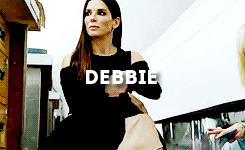
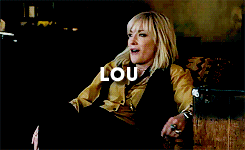
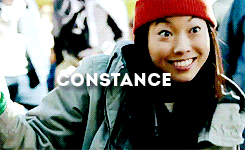
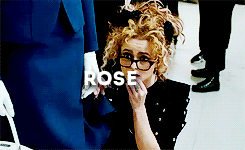


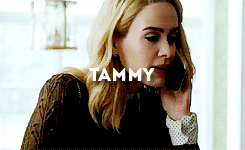

ocean’s 8 + main characters
#i've been willing to die for sandra bullock for as long as i can remember and nothing has changed#oceans 8
40K notes
·
View notes
Text
my pet peeve are fic summaries with something deep and obscure that not only tell me nothing about the story but dont MEAN anything theyre just words like
‘When lost eyes lock onto a summer’s shadow, will love make it in the end?? [content warnings]: anal fisting ‘
251K notes
·
View notes
Text
met a dumb ass today, awful
185K notes
·
View notes
Photo

Daily Capital Journal, Salem, Oregon, March 31, 1956
90K notes
·
View notes
Photo





Vera Rubin, the woman who discovered the first evidence of dark matter, has died at 88
Vera Rubin, the astrophysicist responsible for confirming the first existence of dark matter, died on Sunday night at the age of 88.
Carnegie Institution president Matthew Scott called Rubin “a national treasure as an accomplished astronomer and a wonderful role model for young scientist.”
Rubin and her colleagues observed galaxies in the 1970s, they learned the motion of stars is a result of a “material that does not emit light and extends beyond the optical galaxy” — also known as dark matter.
Swiss astrophysicist Fritz Zwicky proposed the idea of dark matter in 1933, but Rubin’s groundbreaking work subsequently led to the confirmation of the material.
This finding is what led to the discovery that 90% of the universe is made up of dark matter, a finding some colleagues felt was overlooked and deserving of a Nobel Prize. Read more
follow @the-future-now
64K notes
·
View notes
Text
When I was doing Twilight there was a moment when it was snowing and hailing in the middle of the set and I couldn’t finish shooting the scene, so I went behind a tree and cried for like 30 seconds and came back and then went ‘right we’re going to do this and this’. On that film I never went over budget, never went over schedule, never fired people or yelled at people, nothing. But I get told that I’m emotional and difficult and cried on sets.” She laughs. “Listen I’ve been on sets where male directors have fired the crew, gone over schedule by a month, two months, even three, gone over budget by millions, come in unprepared, not even had a shot list, yelled and got into physical fights with people or, you know, brought hookers to set… No one says they’re difficult. Or I’ve also seen a big man, a former football player, who cried on set and you know what happened? People gave him a round of applause and said he’s so sensitive… If somebody says there’s not a gender bias, that there’s not a double standard, then they do not have their eyes open.”
Does she believe that double standard has had a knock-on effect on her career? “I said in print after Twilight came out that I’d love to do a superhero movie – did anyone call? Not one person, but we won best action sequence at the MTV awards and Twilight had just made $400m (£257m). Let’s just admit that any guy who’d done that every studio would have called them and been like ‘lets do a three-picture deal. What’s the next movie you want to make?’ For me it was radio silence. I refused to give up so I called up about a script I’d loved with loads of action sequences and said I’d love to meet on it and they came straight back and said ‘no we want a guy’. The guy they eventually hired had no box office close to what I’d done but they wanted a guy because it was action.”
Catherine Hardwicke
#feminism#i don't go here when it comes to twilight but i always thought it was really funny how everyone would drag the cheesy graphics#that were used consistently throughout the cinematic universe for it somehow too stupid to realize that it was an intentional consistency#and not a lack of quality or budget - it was there to set a tone and to avoid taking itself too seriously or seeming too set-in-time#the soundtrack was absolutely nothing but bops too
21K notes
·
View notes


